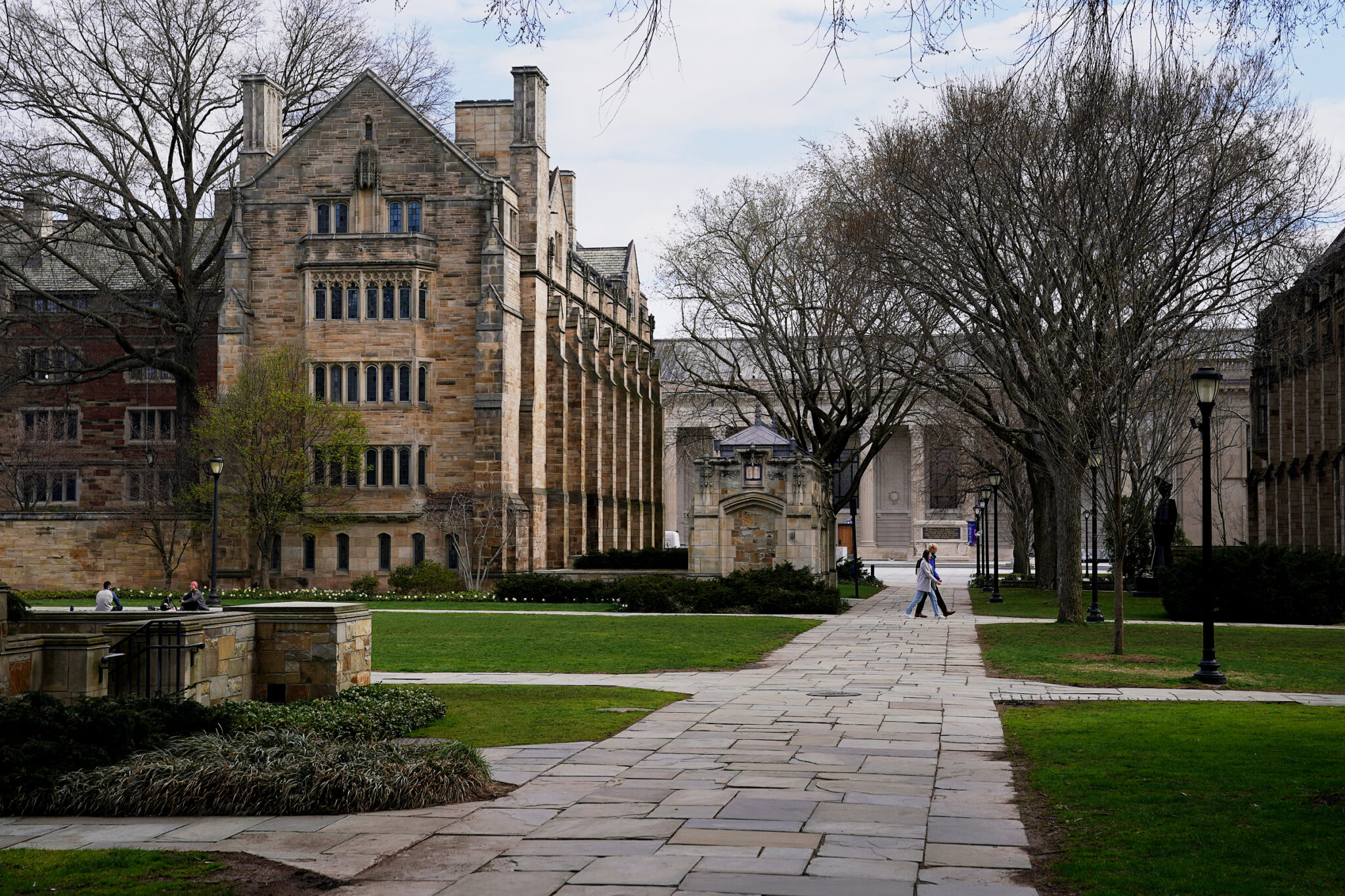Yale to revisit investments in weapons manufacturing following student concern, protest
Amid rising reports of mass shootings and the ongoing war between Israel and Hamas, students are calling on the University to amend its policy for investing in weapons manufacturing. University President Salovey told the News that the policy is currently under review.

Tim Tai, Senior Photographer
University President Peter Salovey told the News that the University’s Advisory Committee on Investor Responsibility is considering revisiting its policy regarding investments in weapon manufacturing and retail.
Currently, the University’s policies, outlined by the Investments Office’s Ethical Investment Policy, prohibit the University from investing in assault weapon retailers, which sell weapons to the general public. However, these regulations do not apply to weapons manufacturers.
Although the University’s policy review began last year because of long-held concerns by Yale community members, the review now accompanies mounting student calls for weapons divestment.
During a walkout of over 100 students on Oct. 25, student protestors called on the University to divest from arms manufacturers, such as Lockheed Martin. Student protestors also called for an end to both Israel’s siege of Gaza and the United States’ financial support for Israel.
Additionally, in January, Yale Students Demand Action — part of a larger grassroots network of the nonprofit Everytown for Gun Safety — joined students from almost 30 colleges and universities across the country in signing onto the #KillerBusiness campaign asking their institutions to sever all economic ties with the gun industry.
“Yale adopted a formal divestment policy that requires Yale to divest from retail outlets that market and sell assault weapons to the general public,” Salovey wrote. “The Advisory Committee on Investor Responsibility is studying whether there are grounds to revisit the policy under the university’s ethical investment framework.”
The current policy was adopted in 2018 following a request made to the ACIR — which is composed of alumni, faculty, staff and students — by School of Medicine professor and deputy director of the Yale Cancer Center Daniel DiMaio.
DiMaio requested that Yale divest from companies that manufacture or sell military-style assault rifles. However, as the University’s policy stands now, it only states that Yale will not invest in retail outlets that “market and sell assault weapons to the public.”
The policy notes that the Corporation Committee on Investor Responsibility — which is composed of trustees and gives investing guidance to the full Corporation — “gave special consideration” to certain factors that the ACIR raised upon recommending the policy to the Corporation. Among them was a distinction between weapons manufacturers and retail distributors of assault weapons, and also a distinction between civilian weapon use and weapon use by military and law enforcement; the latter, per the recommendation, might use such weapons for “sanctioned purposes.”
“The loss of life resulting from mass shootings in our country is deeply tragic,” the CCIR statement reads. “Yale is committed to research, scholarship and education for the betterment of the world; this requires an environment in which teachers and students are free from gun violence and the fear of gun violence.”
As of Oct. 26, the U.S. has seen 565 mass shootings. According to Everytown, gun violence kills almost 40,000 Americans every year and is the leading cause of death among American children and teens. Research from the Violence Project and Best Colleges states that at least 98 people have been killed in 12 mass shootings that have taken place at U.S. colleges since 1966 — with 75 percent of those incidents occurring in the last 16 years.
It remains unclear whether the University has or previously held ties to weapons retailers or weapons manufacturers because the Investments Office does not disclose its holdings. When asked about Yale’s holdings in weapon manufacturers, the Investments Office referred the News to Salovey’s initial response.
Finance professor and deputy dean for faculty Heather Tookes, who is also chair of the ACIR, wrote to the News that the current review of the assault weapon retailer divestment policy stems from a presentation by Yale’s chapter of Students Demand Action in the 2022-2023 academic year.
“The process involves research and discussions within the committee,” she wrote. “The deliberations of the ACIR are ongoing and confidential; however, we will inform the Yale community if the process results in any changes to the current policy.”
DiMaio, who initially requested divestment, told the News that the decision to divest entirely from the weapons industry and other industries is “not quite so clear cut.”
He added that while he believes it is clear that assault weapons should not be in the hands of civilians, he also said that he knows there are reasons for weapons in the military and in law enforcement.
“I think we should be constantly thinking about: ‘are we making responsible investments?’” DiMaio said. “However, I would say that I think there are legitimate uses of these sorts of weapons, so it’s not clear to me that [total divestment] would be the right decision.”
The gun industry brings in over $9 billion every year, according to Everytown.







